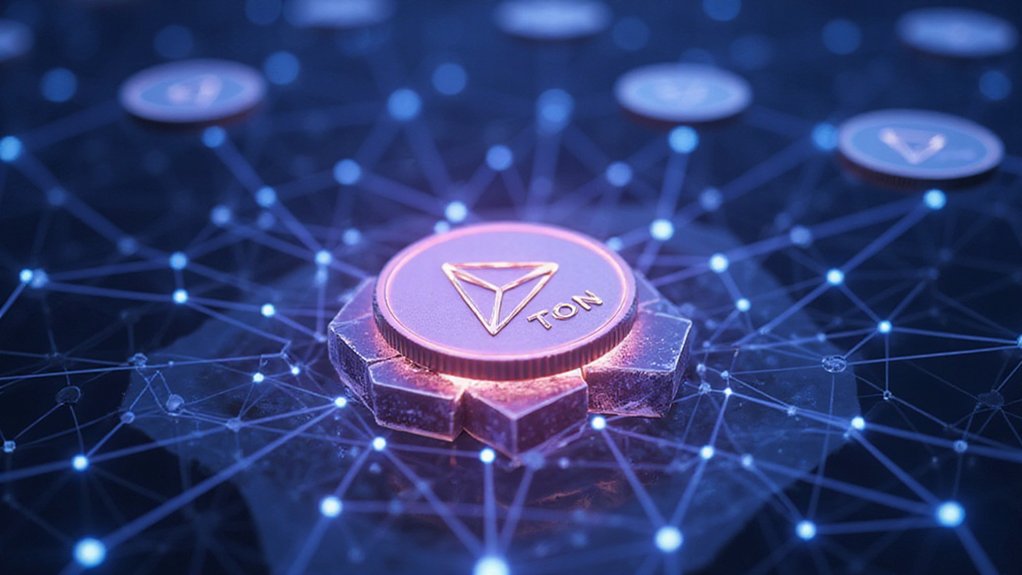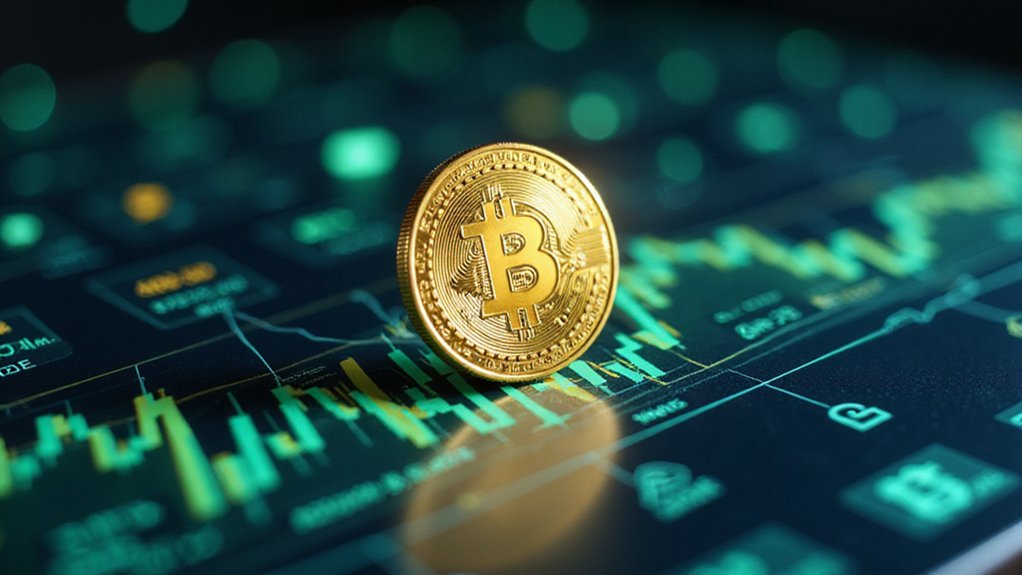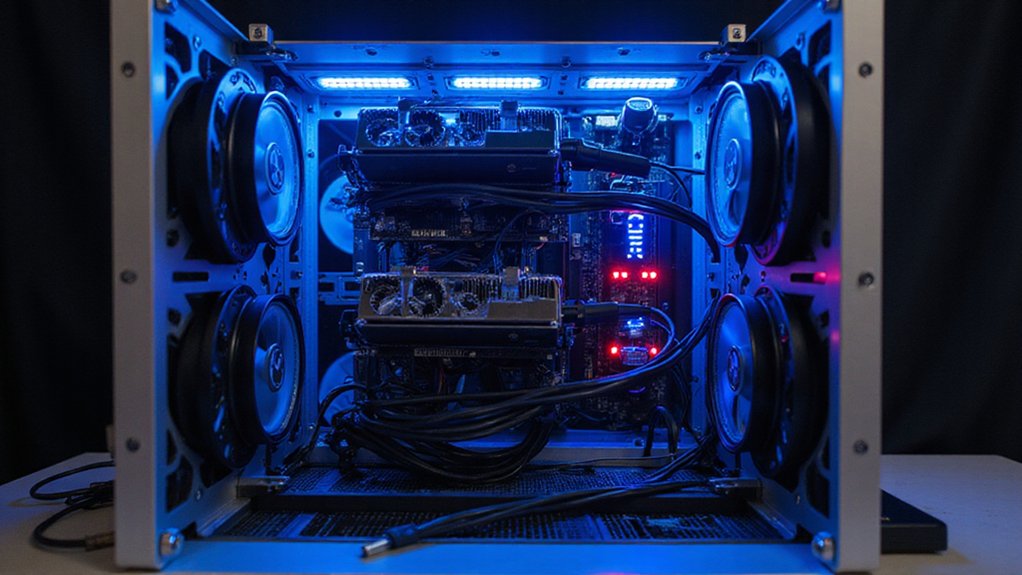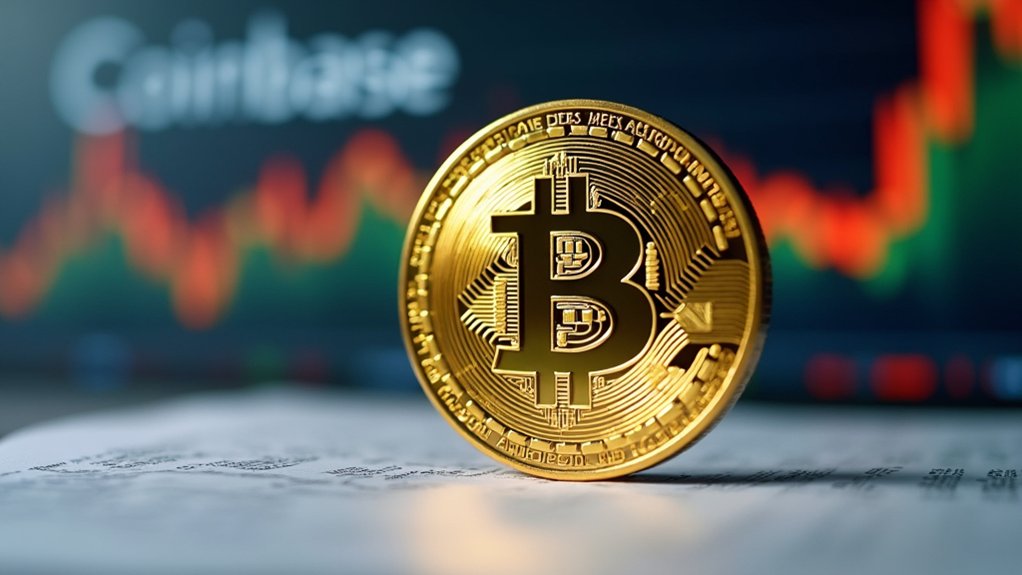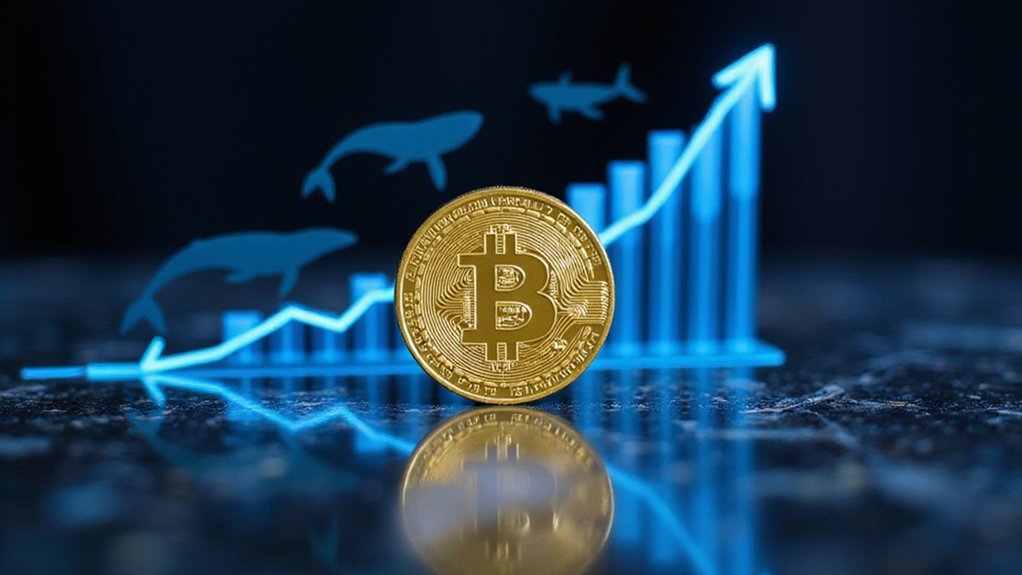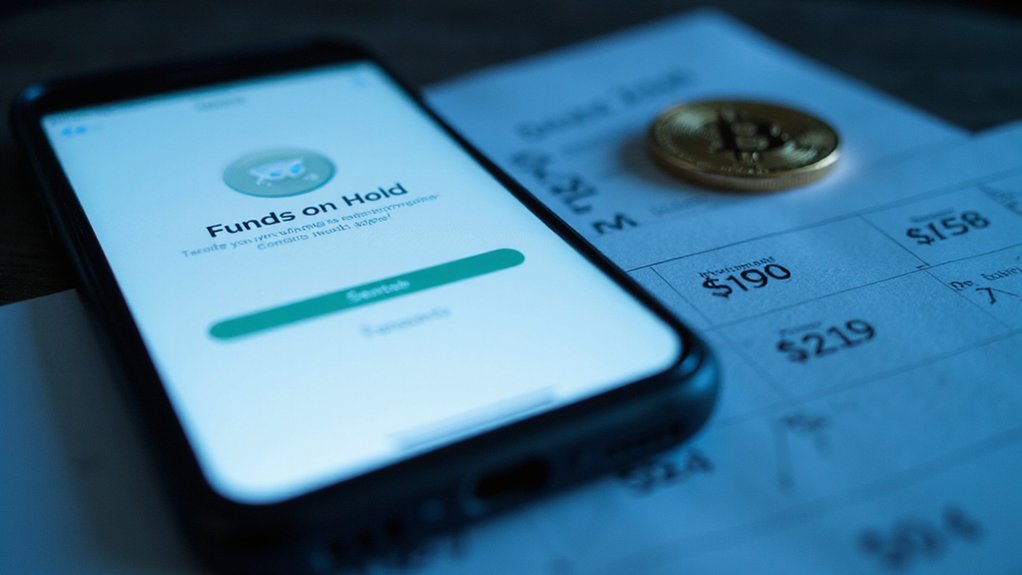Toncoin is the native cryptocurrency of The Open Network (TON), a blockchain platform designed with scalability as its north star. It functions as both utility token and economic lubricant—covering transaction fees, enabling validator participation through staking, and powering an ecosystem that includes decentralized storage, domain services, and even tap-to-earn games like Notcoin. Originally conceived as “Gram” in 2019, this multi-faceted digital asset operates within TON’s innovative multi-chain framework, where sharding distributes processing tasks for remarkable efficiency. The rabbit hole extends far deeper.
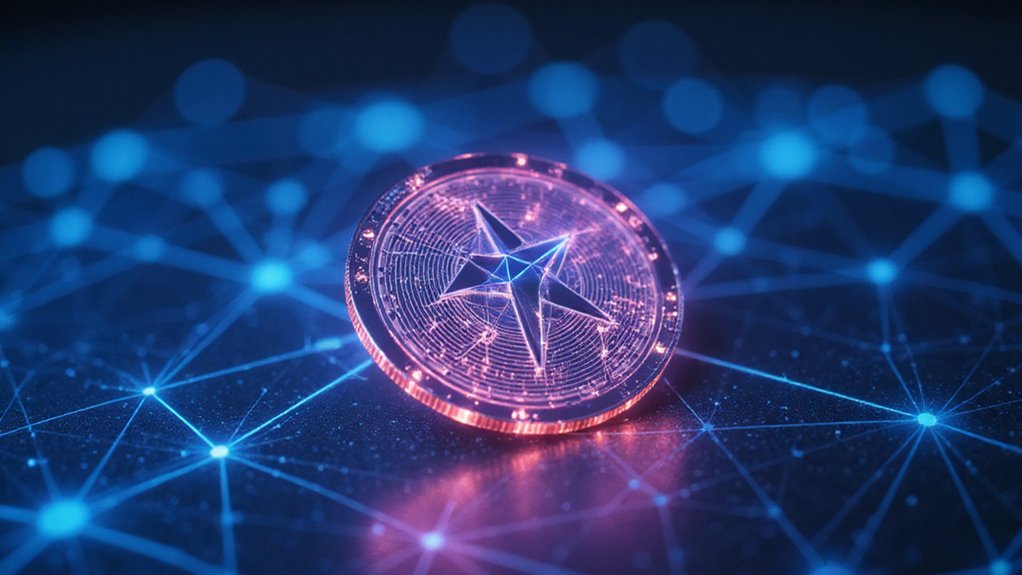
In the labyrinthine ecosystem of cryptocurrencies, Toncoin emerges as a distinctive player—the native cryptocurrency of The Open Network (TON), a decentralized layer-1 blockchain engineered for scalability and performance.
This utility token serves multiple essential functions within the TON ecosystem, most especially as the gas token for transaction fees—that unavoidable toll extracted for the privilege of network participation.
TON’s architecture represents a notable departure from conventional blockchain designs.
TON’s revolutionary multi-chain framework elegantly sidesteps the architectural limitations that constrain traditional blockchain implementations.
Its multi-layered structure implements sharding (that holy grail of blockchain scalability) to prevent the congestion that plagues less sophisticated networks.
By distributing processing tasks across multiple chains, TON achieves the blockchain trinity: scalability, security, and that elusive decentralization that crypto purists demand.
The network secures itself through a Proof-of-Stake consensus mechanism—a far cry from Bitcoin’s energy-devouring Proof-of-Work alternative.
Validators, those gatekeepers of transaction legitimacy, must stake Toncoin to participate in block production and, naturally, earn rewards for their trouble.
Users unwilling to run validator nodes can delegate their tokens to established validators, creating an elegant system of shared incentives and trust.
Beyond its fundamental utility functions, Toncoin powers an expanding ecosystem of services.
The TON ecosystem has gained significant attention through Notcoin, a popular tap-to-earn game that attracted over 40 million players to the blockchain.
The network supports decentralized storage (because centralized data repositories are so 2010), a human-readable domain name system, and anonymous networking capabilities for the privacy-conscious.
The rebranding from Gram to Toncoin occurred in May 2021 when the project achieved full independence through its mainnet launch.
Perhaps most practically, it enables low-cost payment systems and cross-chain transactions, facilitating the frictionless movement of funds that cryptocurrency enthusiasts have long promised yet seldom delivered.
Developers can deploy smart contracts on TON, building decentralized applications that leverage the network’s speed and scale.
This versatility positions Toncoin at the intersection of utility and innovation—a cryptocurrency that functions not merely as a speculative asset but as the lifeblood of a functional digital ecosystem.
The token’s journey began in November 2019 with the launch of TON testnet2, when 5 billion coins were initially minted to power the network’s operations.
In a market saturated with tokens of questionable utility, Toncoin’s multifaceted role within a purpose-built network offers an innovative departure from the norm.
Frequently Asked Questions
How Secure Is Toncoin’s Blockchain Technology?
Toncoin’s blockchain boasts formidable security through its Proof-of-Stake consensus, requiring substantial validator stakes that economically disincentivize attacks.
Its multi-layered architecture, complete with sharding and zero-knowledge proofs, fortifies privacy without sacrificing transparency.
Smart contracts, written in the efficiency-optimized FunC language, undergo rigorous security audits.
Perhaps most critically, the decentralized governance model—where stakeholders collectively vote on protocol enhancements—ensures constant security evolution through distributed oversight rather than centralized vulnerability.
Can Toncoin Be Mined Like Bitcoin?
No, Toncoin cannot be mined like Bitcoin.
While Bitcoin employs an energy-intensive proof-of-work system requiring specialized hardware to solve cryptographic puzzles, Toncoin operates on a proof-of-stake consensus mechanism.
Instead of “mining,” participants validate transactions and secure the network by staking their tokens.
This fundamental difference eliminates the computational arms race characteristic of Bitcoin mining, while allowing token holders to earn rewards through validation activities or by delegating their coins to established validators.
What Unique Features Set Toncoin Apart From Other Cryptocurrencies?
Toncoin distinguishes itself through its remarkable scalability (processing millions of transactions per second via sharding), seamless Telegram integration (granting access to over a billion users), and dynamic smart contract capabilities.
Unlike many cryptocurrencies struggling with adoption barriers, TON’s incorporation into a widely-used messaging platform creates an unusually accessible on-ramp to Web3 functionalities.
Its low-latency architecture and Proof-of-Stake consensus further position it uniquely at the intersection of user-friendly design and technical sophistication.
How Volatile Is Toncoin Compared to Established Cryptocurrencies?
Toncoin exhibits significantly higher volatility than Bitcoin and Ethereum, which is hardly surprising given its relative infancy in the cryptosphere.
With a smaller market cap and developing ecosystem, TON experiences more pronounced price swings during market turbulence.
While established cryptocurrencies benefit from liquidity buffers that somewhat temper their fluctuations, Toncoin’s volatility profile reflects its position as an emerging asset—promising but unpredictable, particularly as its integration with Telegram continues to evolve the token’s utility proposition.
What Major Partnerships Has Toncoin Secured?
Toncoin has secured several strategic partnerships that bolster its ecosystem and market position.
Notable collaborations include Travala.com (integrating TON for crypto-based travel bookings), DWF Labs (enhancing Web3 infrastructure and Fireblocks integration), and Animoca Brands’ Mocaverse and MOCA Foundation (establishing a reputation layer and cross-ecosystem engagement).
These alliances—backed by heavyweight VCs like Sequoia Capital, Benchmark, and Ribbit Capital—strategically position TON for expanded adoption while reinforcing its decentralized network aspirations.
